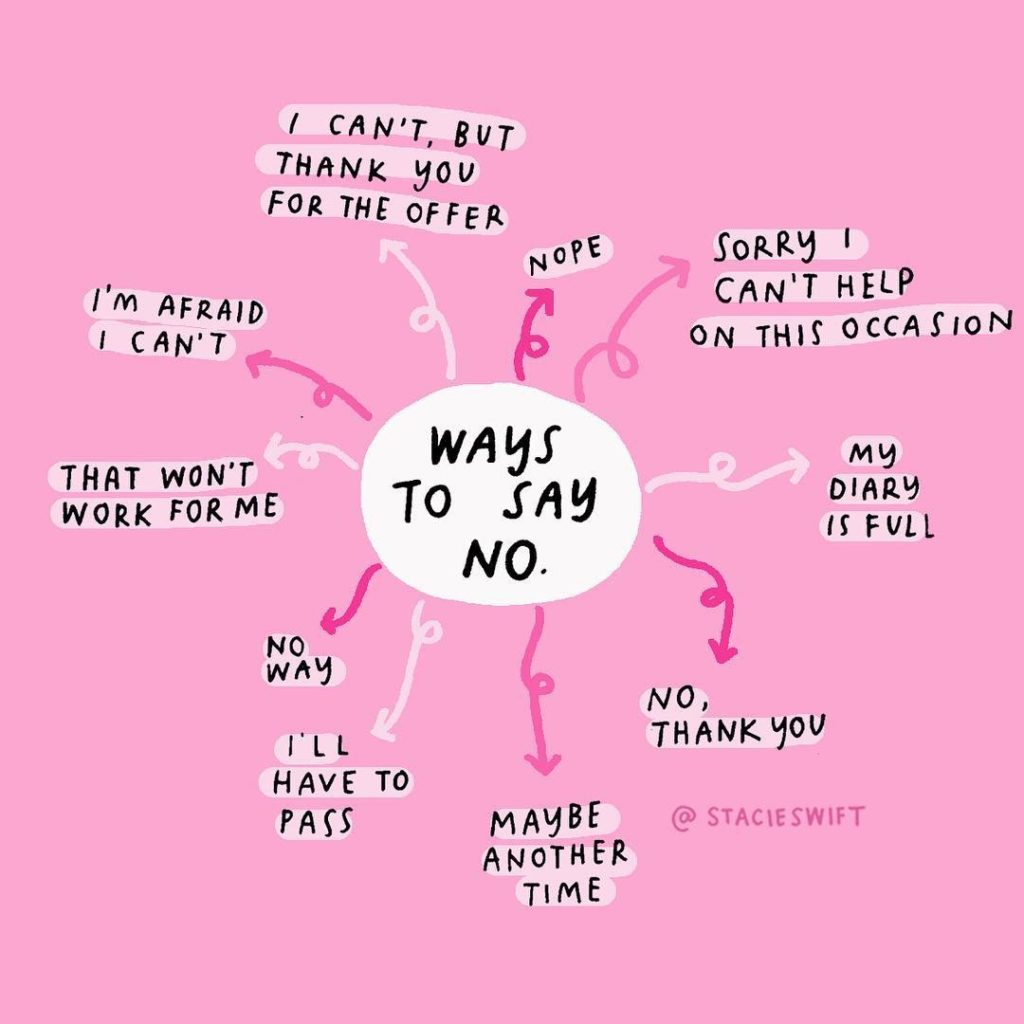I am certain we have all been there; agreeing to something we are not certain about, only to regret it later:
- At work do you take on extra responsibilities even though you are swamped?
- At home, do you volunteer to help a friend even though you you are exhausted?
- Or perhaps you find yourself agreeing to a family request out of a sense of guilt, duty or expectation?
Yes, that’s the one. You accept and go along with the request, but part of you, deep down inside, knows you don’t really want to be dong it.
Often it isn’t until after the event that we are able to truly acknowledge to ourselves that our first instincts were right. But by then, perhaps we are feeling more exhausted, resentful and possibly angry with ourselves for not exercising a boundary in the first place. And if it happens often enough, that we don’t act in a way that is true or kind to ourselves, it can start to affect our self-esteem.
But what, I hear you say, is a boundary?
Psychologists, Dr Henry Cloud and John Townsend, in their book Boundaries (1992), describe a boundary as ‘anything that helps to differentiate you from someone else, or shows where you begin and end‘ (p.33.).
Boundaries can be:
- Physical – helping us to determine who may touch us, how, and when
- Mental – giving us the freedom to have our own opinions
- Emotional – helping us to manage our own emotions and disengage from the harmful and manipulative emotions of others.
But what makes us say yes, when we really mean no?
- perhaps we worry that we won’t be liked if we don’t agree with someone else’s proposal – rejection is a powerful emotion.
- perhaps you say yes on moral grounds, believing you would want others to help you if you were in need
- or do you consider yourself as that person who is always there for others
- we might tell ourselves we haven’t got a good enough excuse to decline someone’s offer
- or maybe we are afraid of letting others down – often we can be conditioned to putting others’ needs before our own and we can act in a way that is self-deprecating
- or sometimes we live our lives with a strong desire to please other people
- or we may have a fear of conflict. Past associations of saying no may have caused arguments, leaving us wanting to avoid potential conflict.
Brene Brown, in her studies on shame and vulnerability, said, ‘we tend to imagine setting a boundary means being rude or pushy, but setting boundaries doesn’t mean you’re being coldhearted’.
Let’s have a look at some of the ways we can say NO:

If you are finding anything in this article resonating with you, don’t wait for others to change, recognise that the changes will need to come from you.
It can help to start small. Once you start to feel the benefits of putting up some small boundaries, you should start to feel encouraged to carry on
If you believe a lack of boundaries is impacting in a bigger way on your life, remember it can help to talk things over with a trained therapist.
I have worked with many people who have been helped through counselling to make significant changes in their lives and regain a sense of control. Please get in touch if you would like to make an appointment and find out more about how I can help you:
Counselling Enquiries and Booking

